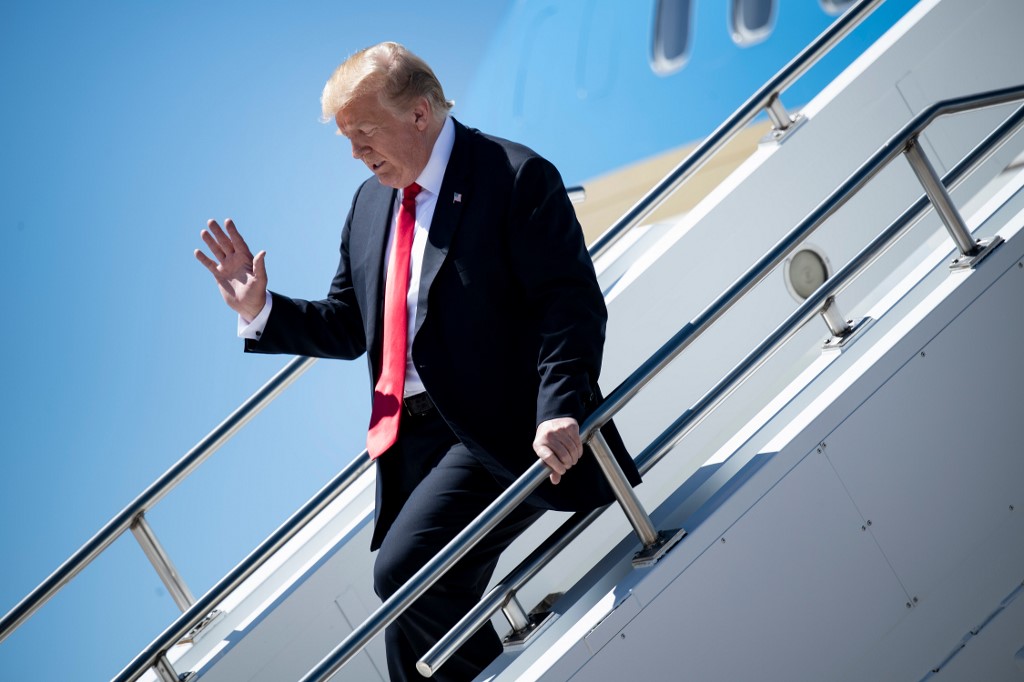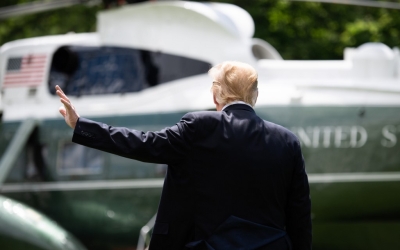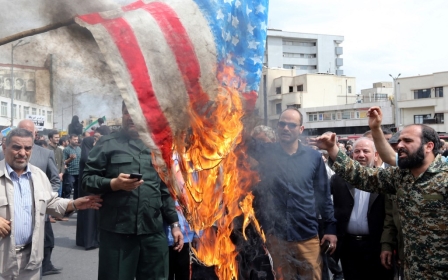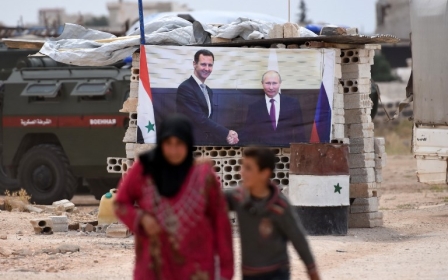Moscow and Washington: Poles apart in the Middle East

Regardless of the controversy over Russian interference in Donald Trump's election, it is fair to say that the foreign policies of Russia and the US are out of sync.
The Russians clearly had strong reasons to favour Trump over Hillary Clinton in the 2016 US election. Her views were aggressive and openly anti-Russian. Neoconservative circles were suspicious of Trump's alleged isolationism and tended to be more supportive of the former secretary of state.
Yet, Trump's victory did not result in a Russian-American honeymoon. The new sanctions against Moscow clearly don't indicate a warming-up between the US and Russia, and John Bolton's appointment as national security adviser was not comforting in the eyes of Russia.
A facade of optimism
On 14 May, US Secretary of State Mike Pompeo was in Sochi for discussions with his counterpart, Sergei Lavrov, and President Vladimir Putin - but the meeting will certainly not mark a turning point in bilateral relations. The tone was reassuring, but the Russians and Americans are well aware that tensions have been mounting since the meeting between Putin and Trump in Helsinki last July.
New MEE newsletter: Jerusalem Dispatch
Sign up to get the latest insights and analysis on Israel-Palestine, alongside Turkey Unpacked and other MEE newsletters
Two thorny issues have emerged, in addition to Syria and the Ukraine. In Venezuela, Moscow is an active supporter of President Nicolas Maduro, in the name of sovereignty and the principle of non-interference. In Russia's view, the US commitment to overthrow the Venezuelan president is "irresponsible".
For the Americans, the Middle East is composed of allies and enemies, and it is necessary to rely on the first against the second
The other issue is Iran's nuclear programme. In some respects, Washington seems more isolated than Tehran. Moscow believes that the Americans are solely to blame, whether for their sanctions or their withdrawal from the nuclear agreement.
Despite these disagreements, Russian leaders are stressing the importance of easing tensions and avoiding military escalation. Russia is the best placed to mediate between Iran and the US, a role it already plays in Syria (between Ankara and Damascus, and between Israel and the "axis of resistance").
Russian and US diplomatic approaches are by no means alike. Pompeo's statement that Maduro was on the tarmac ready to leave, but Russians insisted he stay, would not likely be voiced by a Russian official. Russian diplomacy is more "legitimist," in that national leaders, whoever they are, are its preferred interlocutors.
Russian diplomacy also has a significant asset: Lavrov has been foreign minister for 15 years and has a perfect command of some of the issues that his counterparts are just now discovering.
Little room for dialogue
In the Middle East, where Moscow perceives US involvement to be a factor of instability, another major gap is emerging, with the two countries pursuing two dramatically diverging strategies.
For the Americans, the Middle East is composed of allies and enemies, and it is necessary to rely on the first against the second. The Baghdad Pact and the Eisenhower Doctrine of the 1950s gave rise to persistent thinking patterns. Trump has taken these patterns to a new level.
His key allies are well identified: Israel and the Riyadh-Abu Dhabi axis. The new US president has given little room for dialogue with other players in the region, particularly the Iranians and Palestinians.
It is not surprising that he wants to get rid of the Palestinian issue with an unfortunate "deal of the century," or to bring Iran to its knees with a raft of sanctions.
The Russian doctrine is different. Russia wants to overcome the bloc-and-alliance logic that prevailed during the Cold War. In some cases, Moscow is indeed embracing a certain bias: everything has been done to shore up Bashar al-Assad in Damascus and to defeat his opponents, whether rebels or jihadists.
But on a regional scale, Moscow favours a geopolitical equilibrium: no player should be allowed to overwhelm others. In order to achieve this equilibrium - which is compatible with Russian interests - Moscow wants to win in Syria.
Extreme caution
Russia currently enjoys good relations with all three active alliances in the Middle East: the Ankara-Doha axis, the Riyadh-Abu Dhabi axis and the Tehran-Damascus-Hezbollah axis. While maintaining proximity to Israel, Russia condemns its colonisation and rejects any peace plan that would sabotage the Palestinian issue.
While assuming complicity with the "resistance axis" in Syria, Russia opposes a conflict between Israel and Syria, as well as Israel's assaults on Syrian soil.
In such circumstances, it can be said that the Russians need peace more than the Americans do. When a country has only friends, it is in its interest that conflicts do not exceed a limit that forces it to sacrifice a few interests and possibly a few partners.
Ultimately, although the Russians want to undermine the Americans in the Middle East, they will be extremely cautious and will do everything possible to avoid a war that would set the region on fire.
This article was translated from French. Original piece can be found here.
The views expressed in this article belong to the author and do not necessarily reflect the editorial policy of Middle East Eye.
Middle East Eye delivers independent and unrivalled coverage and analysis of the Middle East, North Africa and beyond. To learn more about republishing this content and the associated fees, please fill out this form. More about MEE can be found here.







